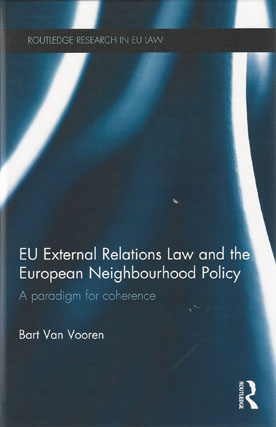We are now closed for the Christmas and New Year period, returning on Monday 5th January 2026. Orders placed during this time will be processed upon our return on 5th January.

During the 1970’s, the EU member states made fledgling attempts to coordinate their foreign policies in the form of intergovernmental structures called European Political Cooperation.
These initial efforts towards integrating national foreign policies were of limited success, as was evident from the failure to respond effectively to the infamous hostage situation in Tehran, or the lacklustre European response to the USSR invasion of Afghanistan over Christmas 1979. This dynamic has continued in the last decades of the twentieth century and into the twenty-first.
The first ever European Security Strategy of 2003 was drawn up after deep European disagreement over the Iraq war. The ‘big bang’-enlargement of May 2004 prompted the need for a novel policy that draws together EU and member state action to effectively deal with the EU’s new neighbours: the European Neighbourhood Policy (ENP).
This book offers a thorough legal and policy examination of the European Neighbourhood Policy (ENP) as latest ‘grand’ experiment in achieving coherent external relations for the Union. The book draws on legal and political scholarship to attain a definition of coherence in EU external relations. It argues that traditional definitions such as vertical or horizontal coherence are insufficient and sets out a new definition in order to more accurately capture the reality of EU external relations.
The book goes on to look in depth at the ENP, arguing that the innovative nature of the ENP in regard to coherence lies beyond the narrowly defined legal sphere, but stems mostly from its hybrid composition of hard legal, soft legal and non-legal policy instruments.